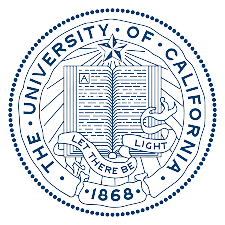About My Practice
Feeling connected and comfortable with your therapist is an essential part of treatment and healing. Using a relational approach, I try to create an environment that helps people work on deeply personal and challenging issues. My particular areas of interest and experience include grief and loss, depression, anxiety, ADHD, adolescent and parenting issues, relationships and identity/sexuality issues. I work with adolescents (15+), young adults and adults. My therapeutic orientation is primarily psychodynamic and attachment theory, meaning I believe your upbringing impacts who you are and possibly the relationship dynamics in your life currently. With this said, I also integrate other theories and techniques, such as solution-focused and cognitive behavioral therapy (CBT) if I feel that will be most helpful to someone as well.
Adolescents and Young Adults
My approach and style when working with adolescents is to include parents in the treatment process. This can be both parents, or mom and dad alternating who comes to session, but I always start sessions with teens and parents together. I believe it is not only important to hear your teen’s perspective, but yours as well on how things are going. This not only helps improve communication between teens and parents but improves your relationship as well.
My goal is not only to build a strong therapeutic connection with your child, but to also help improve your relationship with each other as too. I find that most parents like to work this way and feel much more involved and aware of what is happening in treatment. With that said, I also spend time alone with my teen clients so that they can have time discussing what they want and need to.
It is very common for teens to not know what they are feeling or what they want to talk about in sessions. Developmentally, adolescents are just learning how to be reflective about their feelings. I have an array of activities that help clients learn about their feelings and tell them that I just need them to literally show up to appointments and not worry if they don’t know what to say or how they feel. It’s my job to help them with that.
 I love working with teens and young adults. The messiness of learning from mistakes, the work of figuring out who you are, who you want to be in a relationship with, and for some even, what their gender identity is, and sexual orientation. Not to mention, what you want to do when you ‘grow up’ are some of my favorite conversations. Building one’s sense of self and making sense of one’s life, occurs at all ages, and the type of work I truly love to do. It’s your journey, I just help life and emotions feel more manageable along the way. At times I guide, and others, provide insight, information and education. I help navigate through the darkest of times.
I love working with teens and young adults. The messiness of learning from mistakes, the work of figuring out who you are, who you want to be in a relationship with, and for some even, what their gender identity is, and sexual orientation. Not to mention, what you want to do when you ‘grow up’ are some of my favorite conversations. Building one’s sense of self and making sense of one’s life, occurs at all ages, and the type of work I truly love to do. It’s your journey, I just help life and emotions feel more manageable along the way. At times I guide, and others, provide insight, information and education. I help navigate through the darkest of times.
Sense of Self
Many times people of all ages express not being sure who they are and report feeling like they are, ‘floating’ through life, not feeling grounded and often anxious and/or depressed. Often people feel alone and lack a healthy support system. I help people build a more cohesive, positive sense of self with better coping skills and control over one’s emotions. When possible, I help people make sense of their lives, things they have experienced and endured. I help people feel more connected to themselves and build healthier relationships with others.
 Grief and Loss
Grief and Loss
Some of the most soulful work I do is with people coming in with grief and loss. Nothing quite rocks you to the core than the death of a loved one. In my practice, I work closely with people that have lost babies, children, siblings, partners, and parents. I help people process their experiences and normalize the symptoms experienced with grieving.
My interest in bereavement work came after the loss of my own brother in 2004, while he was serving in Iraq. Little was written at that time on sibling loss. In 2019, after learning from a client that there was still only a handful of books on the loss of a sibling, I interviewed fourteen people whom also lost siblings and in 2020, published my first book called, Surviving Sibling Loss: The Invisible Thread That Connects Us Through Life and Death. I believe this book can also help parents who have lost children or anybody that wants to better understand and be supportive to someone that lost a sibling. Please refer to the book section of this website for more information.
Lastly, if I feel that a client would also be helped from additional therapy, or an expertise outside of my own, such as for addiction, medication, trauma or group therapy, I will make that recommendation and referral. I enjoy working collaboratively with other providers and often work closely with my colleagues that are addiction specialists, offer trauma modalities such as EMDR (Eye Movement Desensitization Reprocessing, CRM (Comprehensive Resource Model), and facilitate therapy groups.
Every therapist has a different style, approach and set of experiences and expertise. If mine seems like a good fit for you, please contact me so we can discuss working together. If I can’t help you myself, or for some reason am not the right fit, I am happy to provide you with good referrals.
Education
- UC Santa Cruz, BA in Psychology
- Alliant International University, formally known as The California School of Professional Psychology, Alameda Campus, Psy.D. (Doctorate of Psychology) Emphasis in Clinical Psychology


